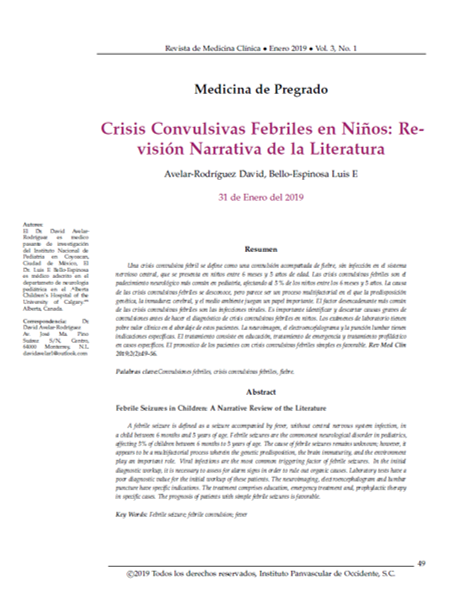Abstract
A febrile seizure is defined as a seizure accompanied by fever, without central nervous system infection, presenting in children 6 months to 5 years of age. Febrile seizures are the commonest neurological disorder in pediatrics, affecting 5% of children 6 months to 5 years of age. The exact cause is unknow, but it appears to be a multifactorial process in which the genetic predisposition, cerebral immaturity, and the environment play an important role. The most common cause of febrile seizures is a viral infection. It is necessary to rule out organic causes and alarm signs during the initial approach. Laboratory tests have a poor clinical value in the workup of these patients. Neuroimaging, electroencephalogram and lumbar puncture have specific indications in patients with febrile seizures. The treatment consists of education, abortive treatment and prophylactic treatment in specific cases. The prognosis of patients with simple febrile seizures is favorable.

This work is licensed under a Creative Commons Attribution-NonCommercial-NoDerivatives 4.0 International License.
Copyright (c) 2019 Clinical Medicine Journal

